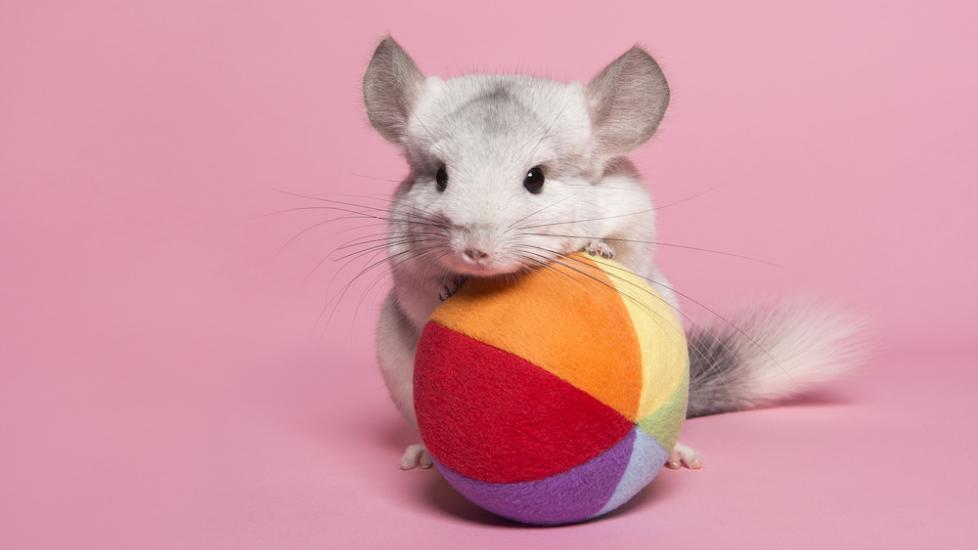5 Fun Facts About Chinchillas
What Is a Chinchilla?
Chinchillas are small social rodents known for their soft, plush fur as well as their quiet and shy demeanor. They are agile and athletic with the ability to climb well and jump up to six feet. Chinchillas require constant chewing to keep their continually growing teeth trimmed. They often sit upright to sunbathe, groom, and to eat with their front paws.
Chinchillas can make great family pets due to their small size and are comparable to a small cat or rabbit. They are naturally clean and odorless. Their timid, peaceful demeanor is better suited for adults and older children. Chinchillas are mostly active around dawn and dusk and tend to be more awake at night. A few fun facts about chinchillas include the following:
#1 Baby Chinchillas Are Called Kits
Baby chinchillas are known as kits and are born fully covered in fur. They weigh between 30–60 grams or 1–2 ounces. At birth, chinchilla eyes and ears are open and functional, making them one of the most independent newborn animals. The average chinchilla litter size is two kits but may range from one to six. They will reach sexual maturity around eight months of age.
#2 Chinchillas Like Dust Baths
Chinchillas will take occasional dust baths to keep their fur conditioned. Their fur should not be bathed in water or get wet since it takes too long to dry and may cause the skin to become inflamed. A dust bath will counter their naturally oily skin and helps maintain the softness of their fur. These dust baths should be offered to pet chinchillas at least two to three times per week. Offering too frequent dust baths may dry out their skin.
A chinchilla bath house or a plastic dishpan container that measures 6” x 6” x 12” may be filled with chinchilla dust 1–2 inches deep. It may be offered for an hour at a time or maintained with daily cleaning and weekly replacement of the dust. Sand should not be used as it may cause irritation of the skin or eyes and may damage the fur.
Recommended products:
#3 Chinchilla Coats Make the Species Endangered
Chinchillas have very dense fur that has up to 60 hairs per follicle and 20,000 hairs per square inch which causes it to feel very soft and fluffy. This makes chinchilla fur desirable to fur traders who have over-hunted them to near extinction. Chinchillas are native to western South America and make their home in the rocky slopes of the Andes mountains. The species C. chinchilla is especially sought after for their higher quality fur and larger size than the common domesticated species C. lanigera. Chinchillas are currently on the endangered list and are protected in the wild. Their numbers continue to decline due to loss of habitat and excessive trapping.
#4 Chinchilla Lifespans Are Longer Than Many Small Pets
Chinchillas are expected to live between 10–15 years in captivity, though in the wild they are only expected to live 8–10 years due to the threat of predators including humans. This makes chinchillas much longer lived than other small pets such as guinea pigs or hamsters. One theory for why chinchillas have a longer lifespan than other small pet species is that their physical development is delayed in comparison. Another possible explanation is that chinchillas have fewer overall health concerns as a species.
#5 Chinchillas Are Pets for Every Family
Chinchillas can be great family pets due to their small size and quiet nature. While they are naturally clean and odorless, they can also be potty trained. They enjoy bonding with their pet parents or another same-gender chinchilla. They have simple dietary requirements, and are less active during the daytime, which is ideal for pet parents that are busy or away.
Featured Image: iStock.com/MirasWonderland
